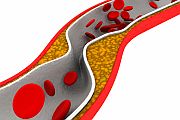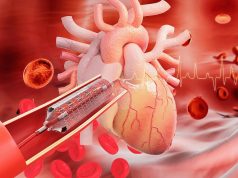Explosive anger increased risk eight-fold, researchers found
TUESDAY, Feb. 24, 2015 (HealthDay News) — Intense anger or anxiety greatly increases the risk of acute myocardial infarction (MI), according to a new study published online Feb. 23 in the European Heart Journal: Acute Cardiovascular Care.
“While the absolute risk of any one anger episode triggering a heart attack is low, our data demonstrate that the danger is real and still there,” Thomas Buckley, Ph.D., a senior lecturer and researcher from the University of Sydney and Royal North Shore Hospital in Australia, said in a journal news release. The increased risk of MI after intense anger or anxiety is “most likely the result of increased heart rate and blood pressure, tightening of blood vessels, and increased clotting, all associated with triggering of heart attacks,” Buckley said.
In the study, Buckley’s team assessed 313 MI patients and asked them to use a 7-point scale to rate their levels of anger over the previous 48 hours. On the scale, 1 was calm, 5 was intense anger, and 7 was enraged/out of control. Seven (2.2 percent) of the patients experienced at least level 5 within two hours before their MI, and one patient reached that level within four hours before the MI. Level 4 (so hassled it shows in your voice) was reported by two patients within two hours before their MI, and by three patients within four hours before their MI.
The researchers concluded that the risk of MI in the two hours after a bout of intense anger or worse — level 5 or more — was 8.5 times higher than normal. They also found the risk of MI to be 9.5 times higher than normal in the two hours after extreme anxiety. Events that triggered patients’ anger-triggered MI included arguments with family members and other people, work conflicts, and road rage. Buckley’s group believes the findings confirm those from prior studies and highlight the need to find ways to protect people most at risk during bouts of extreme anger.
Copyright © 2015 HealthDay. All rights reserved.








